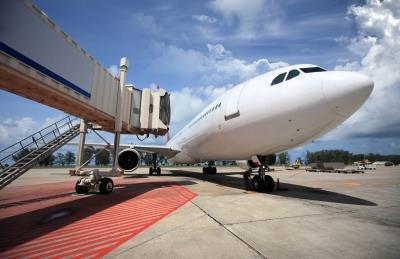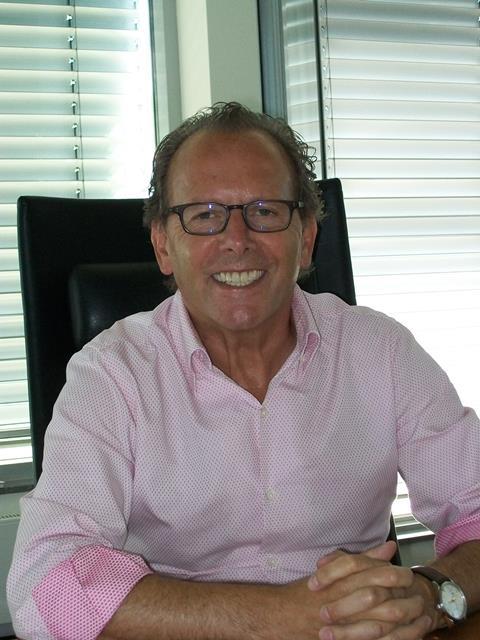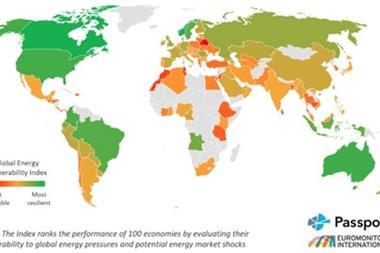Managing Fraport AG’s vast insurance operations, with its sky-high risks, is not a job for the faint of heart. Thankfully, managing director Hans Joerg Schill is always pushing the envelope., Ahead of this year’s GVNW symposium, Schill tells us what it’s like to risk-manage Germany’s largest aviation hub

Germany’s airport management group Fraport has a motto that underpins everything its 20,000 employees do. Gute reise – have a good journey. And with up to 238,000 passengers a day passing through Frankfurt airport alone – Germany’s largest aviation hub and biggest work place – and 46,600 take-offs and landings in onemonth, not to mention 30 airports spread across three continents… it’s a big job to ensure that everybody has a good (that is to say, safe) journey.
Behind the scenes, as the long-serving managing director of Fraport AG’s insurance programme, Hans Joerg Schill makes one of the biggest contributions to that gute reise. He holds global responsibility for all of the group’s insurance programmes, covering all the airports that Fraport owns, shares or manages. And he’s been doing the job for 21 years, an unusually long period in such a hot seat. Eminent in the industry, he is now also vice-president of the German risk management association, GVNW.
Schill handles one of the biggest insurance operations in Europe. Fraport’s property is insured for €12.5bn and business interruption has a €2.5bn cover. Schill’s responsibilities expand every year. In 2017, 14 Greek airports were added to Fraport’s portfolio and in January, Fraport took over the management of two Brazilian airports.
“Compliance has gotten so big that some of the biggest companies are almost working for the regulator rather than for themselves. Everything takes so much more time now.”
CONSTANT CHANGE
In his two decades in the role, Schill has seen profound changes. The biggest would have to be the torrent of regulation that has been imposed on the aviation industry since the 2008 financial crisis.
“Everything has become more complex, with more and more regulation,” he says. “This is good and bad. It’s good that we fulfil our obligations but sometimes the compliance function is overdone. It’s gotten so big that some of the biggest companies are almost working for the regulator rather than for themselves. Everything takes so much more time now.”
Because Fraport is such a diverse organisation, with operational, financial, labour and other divisions, the group is answerable to more than its fair share of regulatory authorities.
Among other governmental organisations including the state of Hesse – a 31.31% shareholder in the group – Schill’s department has to comply with the Federal Financial Supervisory Authority, better known as BaFin.
All of Fraport’s airports are risk managed from Frankfurt, with help from local firms in each country. Given that an airport never fully stops, Schill is on 24-hour notice in the event of an emergency that demands the attention of his team. All risks are colour-coded according to priority – red, orange or green – and responses are based on fixed scenarios according to the location. “Every country is different in what is allowed or not allowed,” he says.
And sure enough, in July he had to throw his weight into a security problem that triggered the cancellation of a number of flights before it was resolved. A few individuals had somehow slipped through the security cordon and made their way onto the apron, the main operational area. Schill’s job was to assess the situation and allocate personnel according to need.
This is not a job for those who like routine. “Operationally, every day is different from the day before,” Schill says, with some feeling.
NEVER FLYING SOLO
Despite the steadily mounting complexities of risk managing one of the biggest airport companies in the world, Schill does it all with a small, hand-picked team that covers the spectrum of risk. Numbering just 12, it comprises lawyers, engineers and MBAs, all of whom have developed specialist expertise in aviation. Outside Germany, he makes sure to employ a broker in every country, who each has an intimate knowledge of how things work in that jurisdiction and can advise the team on local nuances.
“Wherever they arise in the world, reputational risks have to be evaluated and tackled in a proactive manner”
The team’s remit demands a wide range of skills. As well as insurance, it works with other departments on a variety of mission-critical issues such as mergers and acquisitions, broader risk assessments and legal matters, to name a few. In fact, anything that requires risk-based insights. “Our job is much more diverse than just insurance,” he explains.
On top of other obligations, the unit also operates as an in-house brokerage firm that hires out its expertise to the wider aviation industry. “We buy in a big pool and manage the policies for many different airports, not just Fraport’s,” he says. “For instance, we’re the liability broker for Cairo International and for other airports where Fraport has joint ventures.”
As such, the team acts as a useful extra revenue stream for the group. Schill’s department works in tandem with a dedicated risk management department. Both report to the chief financial officer.
The insurance team is also closely involved in the group-wide management of reputational risk.
“Wherever they arise in the world, reputational risks have to be evaluated and tackled in a proactive manner,” he points out.
Fraport runs a compliance programme based on sustainability management that also brings in representatives from different outside interest groups. One such group is those representing residents near the airports, who routinely complain about noise and pollution. Fraport’s long-running noise abatement project is a complex community issue that intimately concerns both airport and airlines in highly technical matters like glide angles, continuous climb strategies and use of reverse thrusts.
BLAZING TRAILS

During his long stint at Fraport, Schill has done his fair share of pioneering. Years before cyber risk became an issue, he was one of the first insurers in Germany to recognise the dangers. He developed a cyber policy for Fraport way back in 1999 because, as he puts it: “I could see it might become a problem. The coverage is much broader now, of course, but we introduced cyber risk at the same time as Deutsche Telekom.”
He was also the first to break away from the German-wide aviation insurance pool run by Allianz and spread the cover among other firms. “We achieved huge reductions in price of coverage and soon all the other airports followed us,” he recalls.
“Today Fraport has one of the biggest liability pools worldwide.”
Schill has spent a lifetime in the insurance industry. He started out with Hanover Re as a liability underwriter in 1990, after graduating as a lawyer, and moved to industrial giant Siemens in 1993, where he was responsible for two captives, in Dublin and Berlin, before joining Fraport in 1998.
“It all comes down to better training of personnel. Training can and should be improved if we are to prevent unnecessary losses.”
And in his more than two decades at the airport group, he has arrived at some important conclusions about risk management in the aviation industry.
One of them, in particular, is highly relevant to other commercial sectors such as manufacturing.
“Most of the losses we have are man-made,” he explains, citing security processes and, in particular, aircraft handling (for instance on the apron where billions of dollars worth of assets are coming and going all day, every day). “The majority of losses results from everything that has to do with handling aircraft.” In fact, Fraport clocks up 400–500 losses a year.
Schill’s conclusion: “It all comes down to better training of personnel. Training can and should be improved if we are to prevent unnecessary losses.”
Working under models and guidelines developed by aviation regulators, Fraport mandates safety training for everybody engaged in operational areas, where carelessness can cost lives. As the airport’s safety policy says: “It takes only a moment of inattention [by drivers] to obstruct or even collide with a taxiing aircraft – with catastrophic consequences. Such incidents must be avoided without fail!”
And although the anti-terrorism programme is not one of Schill’s responsibilities, it’s a constant threat. Fraport has taken out a €1.5bn cover against an attack, with a €1bn liability.
ON THE ROAD AGAIN
With Fraport’s airports spread over much of the world, Schill has to travel widely. “I’m often on the road. I visit all the airports once a year, usually on insurance renewal day,” he says. The week after we spoke, he was to spend four days in Istanbul.
Although Hans Joerg Schill clearly enjoys his work, he makes sure he unwinds from its stresses. A former semi-professional footballer, he still plays once a week for a local team, Kickers Offenbach, founded in 1901. Rather like in his day job, he likes to direct the action, in this case from the mid-field. At the age of 63, that’s beeindruckend, as the Germans say, or impressive! He speaks English, French and Spanish – “If you speak the native language, you are more accepted.”
Although his contract runs out in June 2021, Schill is in no hurry to retire (the official retirement age in Germany is 67). “If you love your job and you are successful, why should you stop?”




















No comments yet